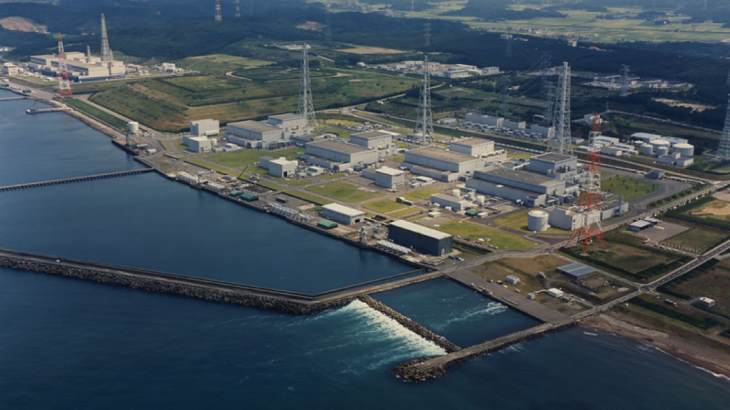Regulator bans fuel loading at Kashiwazaki-Kariwa
Japan's Nuclear Regulation Authority (NRA) has on 14 April issued an administrative order to Tokyo Electric Power Company (Tepco) preventing it from transporting nuclear fuel stored at the Kashiwazaki-Kariwa plant or loading it into reactors. The order - issued in response to a series of security breaches at the site - will delay Tepco's planned restart of unit 7 at the plant in Niigata Prefecture.

Kashiwazaki-Kariwa (Image: Tepco)
On 27 January this year, Tepco notified the NRA that a contractor has accidently damaged intruder detection equipment at the Kashiwazaki-Kariwa site. The company informed the regulator on 12 February that some of the functions related to this equipment had been repaired. However, at that time Tepco said it had found malfunctions in intruder detection equipment at 12 locations on the site and that alternative measures had been implemented. Tepco informed the NRA of three further locations experiencing equipment malfunctions over the following week.
The NRA carried out three inspections at the Kashiwazaki-Kariwa plant between 21 February and 4 March. It concluded the alternative measures introduced by Tepco "have not been effective at multiple locations since March 2020, thereby resulting in a long period of time during which unauthorised intruders cannot be detected, and this situation has not been rectified".
Tepco informed the NRA on 5 March that repairs had been made to all the malfunctioning equipment. It also confirmed that no unauthorised access has been found to have occurred at the affected locations.
The NRA told Tepco on 16 March that a preliminary assessment had rated the significance of these security lapses as 'red' - the highest level on its four-point scale of risks in safeguarding nuclear material. This rating implies a large impact on safety functions or performance.
The NRA today issued an administrative order to Tepco prohibiting it from moving nuclear fuel at the plant until improvements in security measures there have been confirmed by additional inspections.
In a statement, Tepco said: "We take this measure very seriously, and the management will take the lead in investigating the root cause of a series of cases from all perspectives and proceeding with drastic reforms."
Restart on hold
As a result of the security lapses, the NRA decided last month to "suspend for the time being" its pre-use inspections, which are required for Tepco to load fuel into Kashiwazaki-Kariwa unit 7.
Although it has completed work at the other idled units at Kashiwazaki-Kariwa, Tepco is concentrating its resources on units 6 and 7 while it deals with the clean-up at Fukushima Daiichi. Restarting those two units - which have been offline for periodic inspections since March 2012 and August 2011, respectively - would increase the company's earnings by an estimated JPY100 billion (USD916 million) per year.
Tepco applied for NRA approval of its design and construction plan for Kashiwazaki-Kariwa units 6 and 7 in September 2013. It submitted information on safety upgrades across the site and at those two units. These 1356 MWe Advanced Boiling Water Reactors began commercial operation in 1996 and 1997 and were the first Japanese boiling water reactors to be put forward for restart.
Researched and written by World Nuclear News
- China Institute of Atomic Energy
- Nuclear Power Institute of China
- Southwestern Institute of Physics
- China Nuclear Power Operation Technology Corporation, Ltd.
- China Nuclear Power Engineering Co., Ltd.
- China Institute for Radiation Protection
- Beijing Research Institute of Uranium Geology (BRIUG)
- China Institute of Nuclear Industry Strategy (CINIS)
- China Nuclear Mining Science and Technology Corporation


